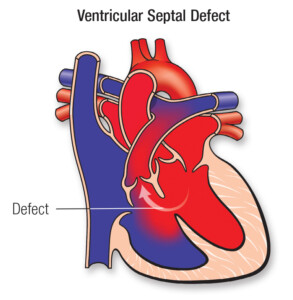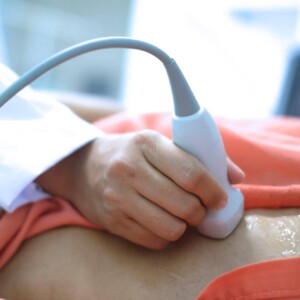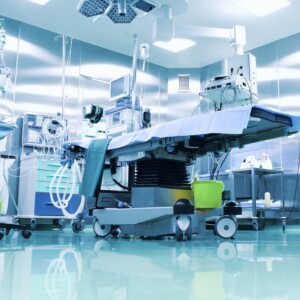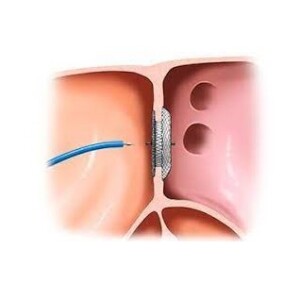

Head of the Department of Congenital Heart Defects in Adults, Beilinson hospital (Rabin Medical Center),
Israel
Dr. Hirsch is in the list of the best doctors of 2022 by Forbes.
Specialty:
Membership:
Education:
Assoc. Dr. Having received the specialty of a cardiac surgeon in 2002, Ahmet Yavuz Balci worked for 1 year at the Adana Seyhan Private Hospital and the Seyhan University Hospital of Bashkent. In 2003, he was appointed MD. After 16 years of professional experience at Siyami Ersek Thoracic and Cardiovascular Surgery Training and Research Hospital, he started working at Medistate Kavacık Hospital in early 2019.
Assoc. Dr. Ahmet Yavuz Balci is still continuing his professional studies at Medistate Kavacık Hospital.
2008-2011 Member of the founding team of surgeons of the project of the Ministry of Health on the creation and activation of domestic and international cardiac surgery centers.
Areas of interest:
Specialization:
In 1998, he completed his residency at the Cardiovascular Surgery Clinic of the Faculty of Medicine, Çukurova University. Participated in adult peripheral vascular surgery, abdominal aortic aneurysm surgery, aortoiliac occlusion surgery, varicose veins, carotid arteries, lung, emergency chest and heart surgery.
In 2001, he took part in the establishment of the Cardiovascular Surgery Clinic of Sureyapash Hospital and contributed to the establishment of the Department of Cardiac Surgery. In addition, Prof. Ali Fedakar established cardiovascular surgery clinics at Giresun State Hospital and Sinop State Hospital and performed the first surgical procedures there.
Membership:
Author of many scientific articles.
Prof. Ingo Denert is MD, specialist in cardiology, surgery and paediatrics.
It treats all congenital heart defects in both adult patients and newborns.
He is listed as one of the best doctors in FOCUS magazine.
Specialization:
Author of over 300 scientific papers
Membership in professional societies:






Check the cost of treatment and get 20 000 € from international foundation
Get financial help up to 20 000 € for your child treatment
Medical consultant
Turkish oncologist will provide an individual chemotherapy program.
Israeli oncologist will provide an individual chemotherapy program.
Spanish oncologist will provide an individual chemotherapy program.
German oncologist will prepare an individual chemotherapy program.
Polish oncologist will prepare an individual chemotherapy program.
Italian oncologist will prepare an individual chemotherapy program.
Turkish radiologist will prepare a personalized radiation therapy program
Israeli radiologist will draw up an individual radiation therapy program.
German radiologist will draw up an individual radiation therapy program.
Spanish radiologist will draw up an individual radiation therapy program.
Polish radiologist will prepare an individual radiation therapy program.
Italian radiologist will draw up an individual radiation therapy program.
Turkish plastic surgeon will make an individual operation program.
German plastic surgeon will make an individual operation program.
Israeli plastic surgeon will make an individual operation program.
Italian plastic surgeon will make an individual operation program.
Polish plastic surgeon will make an individual operation program.
Spanish plastic surgeon will make an individual operation program.
Turkish orthopedic surgeon will make an individual operation program.
Israeli orthopedic surgeon will make an individual operation program.
German orthopedic surgeon will make an individual operation program.
Italian orthopedic surgeon will make an individual operation program.
Lithuanian orthopedic surgeon will make an individual operation program.
Polish orthopedic surgeon will make an individual operation program.
Ukrainian orthopedic surgeon will make an individual operation program.
Spanish orthopedic surgeon will make an individual operation program.
Turkish neurosurgeon will study the medical situation and give recommendations for treatment.
Israeli neurosurgeon will study the medical situation and give recommendations for treatment.
German neurosurgeon will study the medical situation and give recommendations for treatment.
Italian neurosurgeon will study the medical situation and give recommendations for treatment.
Lithuanian neurosurgeon will study the medical situation and give recommendations for treatment.
Spanish neurosurgeon will study the medical situation and give recommendations for treatment.
Ukrainian neurosurgeon will study the medical situation and give recommendations for treatment.
Turksih doctor will answer your questions
Israeli doctor will answer your questions
German doctor will answer your questions
Italian doctor will answer your questions
Polish doctor will answer your questions
Ukrainian doctor will answer your questions
Spanish doctor will answer your questions
Israeli orthopedic surgeon prepare an individual surgical plan and recomendations
Turkish orthopedic surgeon prepare an individual surgical plan and recomendations
German orthopedic surgeon prepare an individual surgical plan and recomendations
Italian orthopedic surgeon prepare an individual surgical plan and recomendations
Lithuanian orthopedic surgeon prepare an individual surgical plan and recomendations
Polish orthopedic surgeon prepare an individual surgical plan and recomendations
Spanish orthopedic surgeon prepare an individual surgical plan and recomendations
Lithuanian doctor will answer your questions
After examining your situation, doctor will make an individual price offer.
Doctor-consultant will answer all your questions about the cost of treatment, the choice of a doctor and fully organize treatment abroad.

we will contact you within 15 minutes
 A ventricular septal defect is a congenital heart defect, which is a hole in the organ. Depending on the severity, this defect can be either a small hole in the interatrial septum or its complete absence. As a result, oxygen-enriched blood returns through a hole in the septum of the heart and passes back to the lungs. Due to the fact that such blood no longer needs to be enriched with oxygen, it creates an excessive load on the body. In some cases, a recurrent respiratory tract infection may develop.
A ventricular septal defect is a congenital heart defect, which is a hole in the organ. Depending on the severity, this defect can be either a small hole in the interatrial septum or its complete absence. As a result, oxygen-enriched blood returns through a hole in the septum of the heart and passes back to the lungs. Due to the fact that such blood no longer needs to be enriched with oxygen, it creates an excessive load on the body. In some cases, a recurrent respiratory tract infection may develop.
The disease is common in children older than three years. A minor ventricular septal defect (VSD) may not cause problems early on. Small holes in the heart close on their own. Infants with moderate or large VSDs may require surgery at an early age to prevent complications.
Foreign cardiologists and pediatricians conduct a thorough diagnosis of children of all ages to determine whether an operation is needed in each case. If intervention on the heart is necessary, then a pediatric cardiac surgeon conducts a consultation and discusses the treatment tactics with the parents.
 Symptoms of serious heart problems present at birth often appear within the first few days, weeks, or months of a baby’s life. Signs of a ventricular septal defect depend on the size of the hole and the presence of other cardiac pathologies.
Symptoms of serious heart problems present at birth often appear within the first few days, weeks, or months of a baby’s life. Signs of a ventricular septal defect depend on the size of the hole and the presence of other cardiac pathologies.
The most common symptoms of a ventricular septal defect in a child may include:
Adult patients may have the following signs of VSD:
It is necessary to consult a doctor if your child gets tired easily while playing, does not gain weight, chokes when crying, breathes quickly (as if he does not have enough air). For an adult, a reason to turn to a cardiologist is when shortness of breath is observed, an irregular heartbeat is disturbing, and there is often a feeling of weakness.
Depending on the location of the hole, the doctor can make a diagnosis according to the following types of VSD:
Important to know! Sometimes doctors from countries with underdeveloped medicine confuse diagnoses. The fundamental difference between PFO (open foramen ovale) and atrial septal defect is that in VSD there is an organic defect – the absence of more or less of the atrial septum. In PAO, the atrial valve does not close.
Foreign pediatric cardiologists have extensive experience in the treatment of any pathologies of the cardiovascular system. They have access to modern high-precision devices for studying cardiac structures.
Smaller ventricular septal defects limit blood flow and pressure in the right side of the heart. Small VSDs cause a relatively small shunt with left-to-right shunting. In this case, the pressure in the pulmonary artery is normal or slightly increased. Heart failure, pulmonary hypertension, and Eisenmenger’s syndrome (pulmonary obstructive vascular disease) do not develop.
Ventricular septal defect is the second most common congenital heart anomaly after bicuspid aortic valve. It can develop independently or together with other congenital anomalies: a complete defect of the atrioventricular septum or transposition of the main arteries.
 A healthcare provider may suspect a problem when they hear an unusual sound when listening to a child’s heart with a stethoscope. In this case, he can refer the patient to a pediatric cardiologist. The cardiologist will listen to the child’s heart and lungs. The doctor may then perform tests to confirm the diagnosis. The tests that the patient must pass depend on his age and condition.
A healthcare provider may suspect a problem when they hear an unusual sound when listening to a child’s heart with a stethoscope. In this case, he can refer the patient to a pediatric cardiologist. The cardiologist will listen to the child’s heart and lungs. The doctor may then perform tests to confirm the diagnosis. The tests that the patient must pass depend on his age and condition.
In foreign clinics, hardware studies are carried out to make a diagnosis. This allows you to accurately determine which treatment methods are appropriate for the patient.
Chest radiograph
Chest x-ray showing the heart and lungs. In VSD, x-rays may show an enlarged heart. This is because the left ventricle receives more blood than usual. There may also be changes in the lungs due to the extra blood flow.
Electrocardiogram (ECG)
This test records the electrical activity of the heart. It also shows an abnormal rhythm (arrhythmia) and determines the tension of the heart muscle. With a qualitative ECG, it is possible to detect ventricular hypertrophy, expansion of the right atrium and the right leg of the His bundle (accumulation of cells of the conduction system of the heart).
Echocardiogram (ECHO)
ECHO uses sound waves to create a moving image of the heart and heart valves. This test can show the nature and amount of blood flow through a hole in the septum.
Before going to a foreign hospital for the treatment of a ventricular septal defect, the patient’s parents can have an online consultation with the doctor. A foreign cardiologist will get acquainted with the current results of examinations, which will save money during hospitalization.
 This heart disease determines the presence of a hole in the interventricular septum (it separates the ventricles that pump blood in the systemic and pulmonary circulation). The defect consists in mixing venous blood from the right side of the heart with oxygenated blood from the left side through a hole in the septum between the ventricles. In the world’s leading clinics, doctors effectively provide medical care to patients of all ages with this pathology.
This heart disease determines the presence of a hole in the interventricular septum (it separates the ventricles that pump blood in the systemic and pulmonary circulation). The defect consists in mixing venous blood from the right side of the heart with oxygenated blood from the left side through a hole in the septum between the ventricles. In the world’s leading clinics, doctors effectively provide medical care to patients of all ages with this pathology.
Surgery for ventricular septal defect
The purpose of the operation is to close the opening of the septum until lung failure occurs. Surgery will help children who have problems with eating and gaining normal weight. The cardiologist will decide when your child should have surgery. This may be based on echocardiography and other findings.
In a classic operation, a heart-lung machine is used. The doctor sutures the defect and puts a special patch. After that, regular monitoring by a cardiologist will be required. Further, the child will need a long rehabilitation. Therefore, foreign cardiac surgeons prefer more gentle and modern methods of operations.
A ventricular septal defect can be corrected by cardiac catheterization. This procedure uses a septal occluder (formerly a coil) along with a catheter. The doctor guides the catheter through the blood vessels to the heart. Once the catheter enters the heart, the doctor closes the defect with a septal occluder. This procedure requires a highly skilled cardiac surgeon and should be performed in centers with staff experienced in transcatheter repair. Clinics in Spain, Israel and Turkey have specialized departments of pediatric cardiac surgery.
In specialized foreign centers, cardiac catherization is widely used for congenital heart disease. CHD is understood as a violation of the function and structure of large vessels and the heart in children at the stage of intrauterine development. This leads to congestion and insufficiency of the myocardium of the heart chambers, altered blood flow in the systemic and pulmonary circulation.
 Endovascular surgery is a type of surgery performed on blood vessels through a percutaneous, imaging-guided approach using special instruments. Treatment of a ventricular septal defect abroad is often carried out in this way.
Endovascular surgery is a type of surgery performed on blood vessels through a percutaneous, imaging-guided approach using special instruments. Treatment of a ventricular septal defect abroad is often carried out in this way.
This is the most sparing method of surgical intervention, which does not require long-term rehabilitation and does not carry an increased risk of infection.
Preparation for percutaneous VSD closure begins with an evaluation of the patient to determine if this treatment is appropriate for them. This assessment is most often done with a transthoracic echocardiogram. This determines the size and location of the VSD, followed by cardiac catheterization to evaluate pulmonary hypertension.
In this case, only partial treatment of VSD is performed. During such an operation, the lumen of the pulmonary artery is narrowed. From this, blood flow in the lungs decreases, lowering the pressure in the organ to a normal level.
Such an intervention may be recommended for a ventricular septal defect in a newborn weighing less than 3 kg.
 VSD is an opening between the two chambers of the heart and is a serious anomaly. For effective treatment, it is necessary to choose a qualified pediatric specialist who can restore the work of the heart and prevent the development of comorbidities.
VSD is an opening between the two chambers of the heart and is a serious anomaly. For effective treatment, it is necessary to choose a qualified pediatric specialist who can restore the work of the heart and prevent the development of comorbidities.
Doctors-coordinators of Experts Medical will help you with the choice of a foreign specialist. Leave a request on the site to get information:
Experts Medical provides assistance in organizing treatment abroad at all stages. Specialists can book air tickets for you, transfer medical documentation to a foreign hospital, and will be in touch until the patient returns home. The company cooperates only with trusted medical centers.
You can be offered the best clinics in the world where VSD is treated: HM Hospitales in Madrid, Memorial in Istanbul, Kardiolita in Vilnius, Rambam in Haifa or medical centers in other cities and countries.
See reviews on the diagnosis and treatment of ventricular septal defect, the cost of procedures on the Experts Medical website.